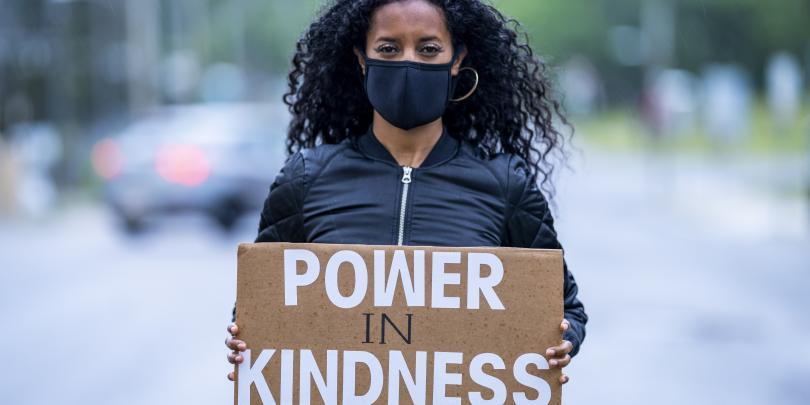
While gratitude is a frequent topic of leadership thoughts around this time of year, I just couldn’t ignore what I’ve been observing in the clients I’m coaching as well as in my own life. While research shows that gratitude makes for a stronger leader, what I hear collectively these days is that it’s also a good time for leaders to be kind — to others and themselves.
Consistently, coaching sessions during the pandemic have started with clients presenting more benign goals like being better organized, but they end in conversations about much deeper emotional needs based on the stresses they’re feeling at home and work.
I realize more each day that I’m feeling those stresses too.
As simple and commonsensical as being kind sounds, many leaders are driving on like nothing has changed since before the pandemic began. Others realize everything has changed and let the stress they’re feeling stand in the way of best supporting their teams.
The fact is that being kind is a hallmark of a good leader. For those who need evidentiary research to demonstrate it, it’s out there. Boris Groysberg, the Richard P. Chapman Professor of Business Administration at Harvard Business School, highlights among his findings that kind bosses improve morale, increase retention and improve employee attendance.[1]
How do leaders do this?
The answers are remarkably simple if practiced and, like much in the world of neuroscience, can be learned. Leaders can take simple steps to be kind — like demonstrating focused and present listening, reminding team members that they’re there for them and telling folks that they know they’re doing the best that they can in trying circumstances. A final reminder for leaders is that just saying ‘thank you’ can demonstrate kindness in a clear and meaningful way.
Unsurprisingly, leaders can improve by being kind to themselves as well. Rich Fernandez (CEO) and Steph Stern (director) at the Search Inside Yourself Leadership Institute identify ‘self-kindness’ as one of the key components of self-compassion, which is fundamental to building enhanced resilience and increasing the ability to lead through adversity.[2]
Leaders can practice self-kindness in many ways. Fernandez’s and Stern’s research on neuroplasticity finds that rewiring the brain through deep breathing and meditation practices can help, as can encouraging inner kindness by writing to ourselves and seeking self-compassion through journaling.
For those who think practicing kindness to self and others is too ‘touchy feely’ or demonstrates weakness, one needs only turn to America’s armed forces for evidence of the contrary. As I read Dare to Lead by renowned leadership researcher and author Dr. Brene’ Brown, I was reminded of the love I felt for my own soldiers as a former Army leader as she wrote about special operations warriors relaying the bonds shared among their teams, as well as a senior Air Force general’s thoughts about how showing kindness and affection for the people we lead is simply non-negotiable.[3]
The most common and expected thoughts this week are of giving thanks, and we need to do that. This is a Thanksgiving like none other, and we do need to find and embrace the things we’re grateful for.
In addition to that, I hope leaders will feel moved to take what will hopefully be a few days off to contemplate kindness and how demonstrating kindness to others, as well as themselves, might build their capacity to lead.
[1] https://hbswk.hbs.edu/item/good-leadership-is-an-act-of-kindness?cid=spmailing-32756309-WK%20Newsletter%2011-11-2020%20(1)-November%2011,%202020
[2] https://hbr.org/2020/11/self-compassion-will-make-you-a-better-leader
[3] Brown, B. 2018. Dare to Lead: Brave Work. Tough Conversations. Whole Hearts. Random House.
